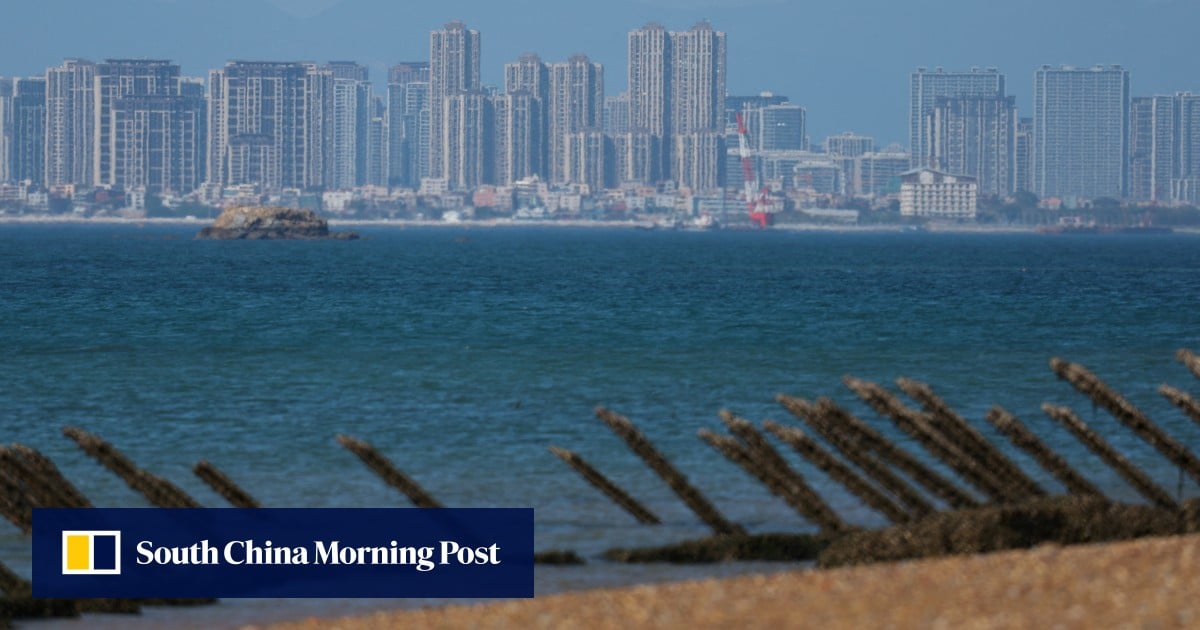On Tuesday, citing bad weather, the Kinmen Defence Command, which had been set to stage the drills, put off the exercises, which include using land-based weapons to fire at sea.
“We need to postpone the drills due to adverse weather conditions,” an officer at the Kinmen Defence Command said by phone. “Shooting training at land-based firing ranges in Quemoy is being held instead,” he said.
Asked when the drills would resume, the officer said he could not give a specific date because it depended on the weather.
He declined to say if the postponement had anything to do with Beijing’s warning.
The China Times newspaper based in Taipei quoted the command as saying that in addition to the poor weather and safety concerns, another reason for the postponement was to “avoid provocation”.
Research finds mainland China, G7 sanctions over Taiwan would be lose-lose
Research finds mainland China, G7 sanctions over Taiwan would be lose-lose
According to a notice issued by Taiwan’s fisheries agency in mid-March warning planes and ships against entering the drill areas, the command had intended to stage live-fire drills at seven areas around Quemoy throughout April as part of its “routine training” to bolster the combat readiness of its troops there.
Beijing, however, questioned the motive for the drills, saying the island’s independence-leaning Democratic Progressive Party authorities “know better than anyone in their hearts” whether the drills were “routine” training or “targeted” provocation.
Taiwan insisted it was merely enforcing the law by ordering the fishermen to stop for inspection after their unregistered and unlicensed speedboat entered waters off Quemoy.
Beijing – which sees Taiwan as its territory to be brought under control, by force if necessary – accused the Taiwanese coastguard of using “violent and dangerous methods” in its pursuit.
The mainland later conducted regular coastguard patrols around Quemoy, prompting the island to respond by sending patrol boats to warn off the mainland ships that entered Quemoy’s waters.
To prevent unintended incidents from breaking out, the United States urged both sides to exercise restraint and resolve the issue peacefully. The US, like most countries, does not recognise the self-ruled island as independent, but is opposed to any forcible change to the status quo and is committed to arming the island.







